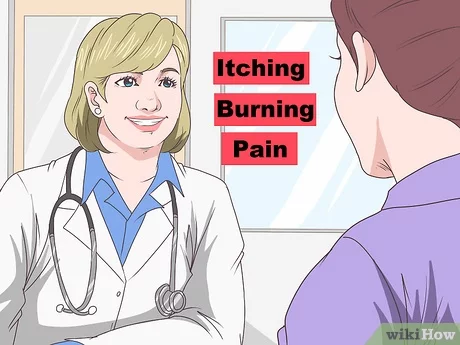
What is genital warts? Genital warts are small, painful lesions that may appear on the penis, scrotum, anus, or lips. They can be reddish, pearly, or even white. Sometimes there is no sign or symptoms of genitals warts, and they can be hidden by your hair. They are generally painless, but treatment is important.
There is no cure for genital warts, but there are several ways to prevent the disease. First, you should consult a doctor to get an accurate diagnosis. You should visit a sexual health clinic for a screening and to get the treatment that will get rid of the warts and prevent the infection from spreading. This service is commonly referred to as genitourinary medicine clinics, although it can be referred to under other names.
If you’re a woman, you should get vaccinated. Several studies have shown that vaccination will prevent genital warts. You can also get the vaccine at a young age, although it’s recommended to be vaccinated before sex. However, the treatment for genital warts is only effective when done by a doctor. It’s important to note that removing the warts is not enough because the virus remains inside your skin.
If your partner is a man, it’s important to let him or her know that you’ve been diagnosed with genital warts. You should undergo Pap tests and follow-up examinations every six months. Smoking and alcohol abuse may increase the severity of genital warts. The treatment of genital warts is difficult to achieve, but it can help prevent transmission of the virus. If you’re a woman, you should get a pap smear at least once a year.
Symptoms of genital warts are often painful, and can even lead to cervical cancer. The symptoms of genital warts can be very unpleasant. While a few sex partners may notice a few of these warts on their bodies, you should not worry about a virus. Typically, genital warts will disappear on their own, but you may have to get a few more treatments.
If you suspect you might have genital warts, you should tell your partner and have them checked by a medical professional. They will perform a pap smear and check for genital warts. A health care provider will recommend a treatment for genital warts, including condoms. These aren’t the best options for preventing the virus from spreading and must be removed carefully by a physician.
When a partner has genital warts, you should inform them about the condition and get them checked. A health care provider can test you for genital warts and screen for other STDs. If you have genital warts, you should use a condom with your partner, but it’s not a guarantee that you’ll never get them. If your partner has genital warts, they’ll be aware of your condition and seek treatment as soon as possible.
With genital warts, it is important to see a doctor. Women with this disease should inform their partners of this and have regular Pap smears. Children should receive the vaccine before they become sexually active. It is important to remember that genital warts can be removed by a healthcare professional, but they usually need to be removed a second time to prevent the infection from returning. You should avoid smoking and alcohol and get your warts checked before having sex with anyone.
There are several different types of warts. Some of them are very small and not visible to the naked eye. Some of them are even completely invisible, so you can’t see them unless you’re looking for them. Regardless of location, genital warts are uncomfortable and can cause sexual dysfunction. Fortunately, the site https://www.vamospormas.org.mx/
describes treatments that will help get rid of these unsightly warts and prevent their recurrence.
If you have genital warts, your health care provider will perform a physical exam to check for any abnormalities. In addition to the gynecological exam, the doctor will also perform a colposcopy to check for warts that cannot be seen with the naked eye. Although warts are not passed from the hands to the genitals, they can be passed on to a partner.
